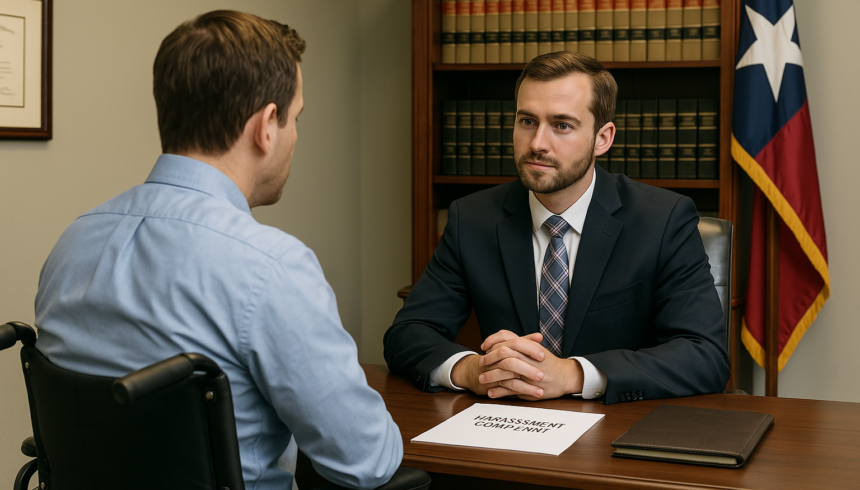
 By Evan Lange
By Evan Lange
Before proceeding, please review the legal disclaimer.
Losing your job is difficult under any circumstances—but if you were fired because of a medical condition or disability, it’s not just unfair. It may be illegal.
Both Texas and federal laws protect employees from discrimination based on disability. If your employer failed to accommodate your condition, treated you differently because of your health, or used your disability as an excuse to terminate you, you may have a wrongful termination claim.
This blog will walk you through the laws that apply, what qualifies as a wrongful firing, and how a Texas employment lawyer can help you fight back.
Wrongful termination due to disability happens when an employer fires an employee because of:
These actions can violate both federal and state law, even in a state like Texas where most jobs are “at-will.”
Several major laws protect employees with disabilities from unfair treatment or termination:
Prohibits employers with 15 or more employees from discriminating based on disability. Requires them to provide reasonable accommodations, unless doing so causes “undue hardship.”
Texas’s version of the ADA—extends similar protections and is enforced by the Texas Workforce Commission (TWC).
Provides eligible employees with up to 12 weeks of unpaid, job-protected leave for serious health conditions. You can’t be fired for using it properly.
A disability includes any physical or mental impairment that substantially limits one or more major life activities. This can include:
Even temporary impairments may qualify under the ADA if they affect your daily life or work responsibilities.
A reasonable accommodation is any change to the work environment or job duties that helps a disabled employee perform essential tasks.
Examples include:
Employers are legally required to engage in an interactive process with the employee to identify workable solutions.
You may have a valid legal claim if:
These types of actions suggest discriminatory intent and can be used as evidence in a wrongful termination case.
Yes—but only under certain conditions.
An employer can terminate you if you cannot perform essential job duties, even with reasonable accommodations. However, they must first explore accommodations in good faith—and document that no viable alternatives exist.
If they fire you without trying or use your condition as a pretext, that may be unlawful.
If your case is successful, you may be entitled to:
Type of Damages | Description |
Back Pay | Wages you would have earned if not fired |
Front Pay | Estimated future earnings lost due to wrongful firing |
Reinstatement | Being returned to your former position |
Emotional Distress | For anxiety, humiliation, or mental suffering |
Punitive Damages | If your employer’s actions were reckless or malicious |
Attorney’s Fees | Your legal costs reimbursed |
Some cases result in substantial settlements, especially when the firing was clearly linked to disability discrimination.
At The Lange Firm, we represent employees across Texas who were unfairly fired due to health conditions or medical needs. We’ll help you:
You don’t have to face this alone—we fight for your dignity, livelihood, and legal rights.
📞 Contact us today for a confidential consultation and let us help you move forward.
Being fired for a disability isn’t just wrong—it may be illegal. If you’ve been let go because of a medical condition or your employer refused to accommodate you, you may have a strong case for wrongful termination.
✅ Don’t wait. Talk to an experienced Texas employment attorney and take back control of your future.
Follow our newsletter to stay updated.

2025- The Lange Firm all rights reserved.

Mr. Evan B. Lange is the attorney responsible for this website. | All meetings are by appointment only. | Principal place of business: Sugar Land, Texas.
The information you obtain at this site is not, nor is it intended to be, legal advice. You should consult an attorney for advice regarding your individual situation. We invite you to contact us and welcome you to submit your claim for review. Contacting us does not create an attorney-client relationship. Please do not send any confidential information to us until such time as an attorney-client relationship has been established.